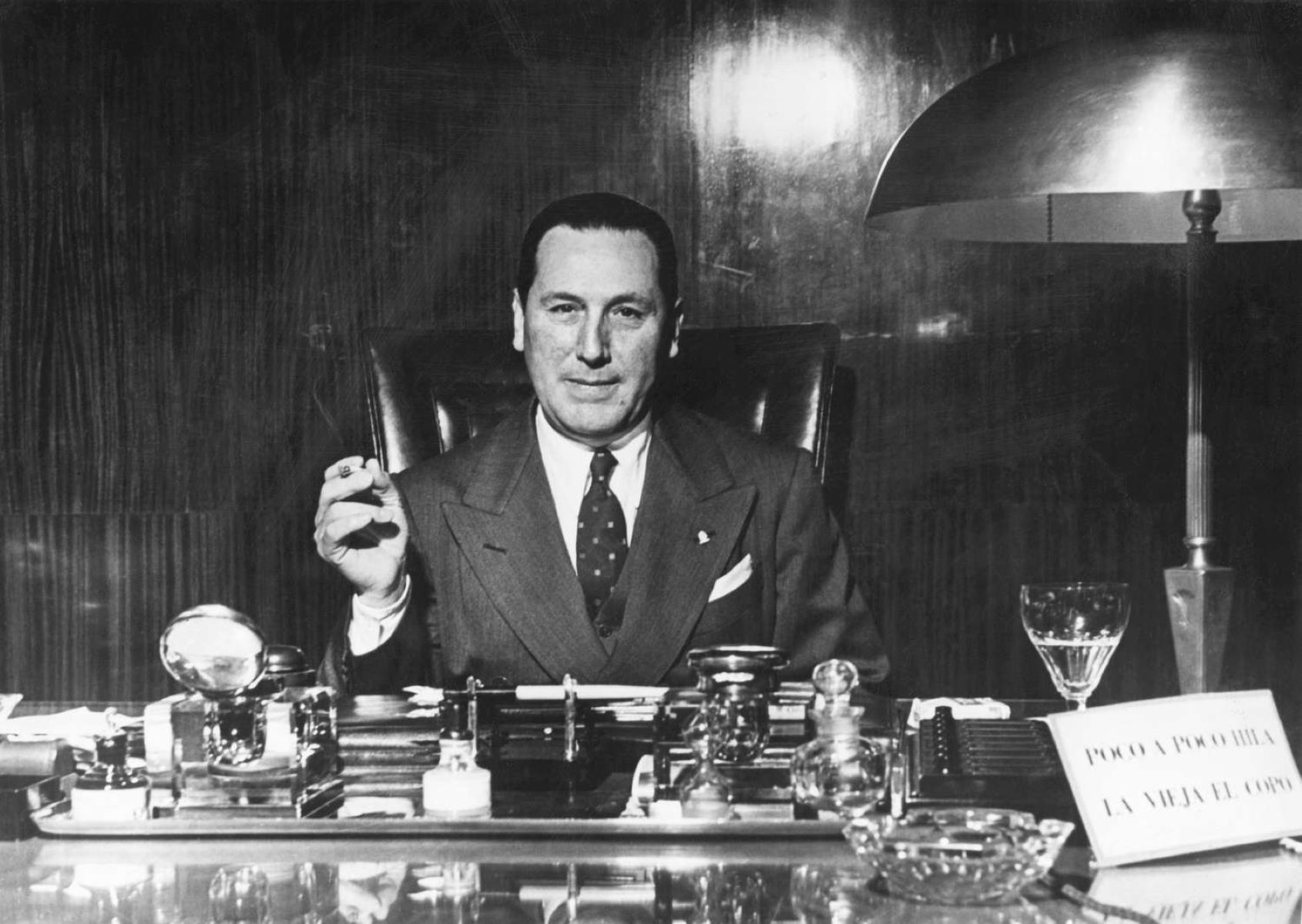
Juan Domingo Perón is a name that carries immense significance in the history of Argentina. As a controversial and charismatic figure, Perón left an indelible mark on the country’s political landscape. His rule, which spanned over multiple terms, had a profound impact on the Argentine society, economy, and foreign relations.
In this article, we delve into the life of Juan Domingo Perón and explore some mind-blowing facts that contributed to his legendary status. From his early military career to his rise as a prominent political leader, Perón’s journey is filled with twists, turns, and noteworthy achievements. Whether you are an avid history enthusiast or simply curious about influential figures, these facts will provide a fascinating glimpse into the life of one of Argentina’s most intriguing leaders.
Key Takeaways:
- Juan Domingo Perón was a revolutionary leader who championed social reforms and established the influential political movement known as Peronism, shaping Argentine politics and inspiring movements worldwide.
- Perón’s charismatic leadership, social reforms, and enduring political ideology continue to impact Argentine politics, emphasizing social justice, inclusivity, and labor rights as key principles.
A Revolutionary Leader
Juan Domingo Perón was an Argentine military officer and politician who served as the President of Argentina three times. He was known for his populist ideology and charismatic leadership style.
The Father of Peronism
Perón is credited with establishing the political movement known as Peronism, which aimed to improve the lives of the working class and promote nationalistic policies.
Evita, the Influential First Lady
Perón’s second wife, Eva Perón, commonly known as Evita, played a significant role in Argentine politics and championed social justice causes. She remains an iconic figure in Argentine history.
Social Reforms and Populist Policies
During his presidency, Perón implemented numerous social reforms, including workers’ rights, increased minimum wages, and the establishment of social security systems.
The Third Position Doctrine
Perón developed the Third Position doctrine, which aimed to establish a political ideology distinct from both capitalism and communism. It emphasized the importance of social justice and economic independence.
Nationalization of Industries
Perón nationalized key industries such as railways, utilities, and oil, aiming to promote economic self-sufficiency and reduce foreign influence in Argentina.
Controversial Relationship with the Catholic Church
Perón’s relationship with the Catholic Church was complex, marked by periods of cooperation and conflict. He sought to balance the influence of the Church while promoting his populist agenda.
A Powerful Support Base
Perón enjoyed significant support from the working-class population in Argentina, who saw him as a champion of their rights and a defender against elite interests.
Exile and Return to Power
After being overthrown in a military coup, Perón went into exile in Spain. However, he later returned to Argentina and regained power, securing his place in history as a resilient leader.
Cult of Personality
Perón cultivated a strong cult of personality around himself, utilizing mass media and propaganda to shape public perception and maintain a loyal following.
Legacy in Argentine Politics
Perón’s influence on Argentine politics continues to be felt to this day, with Peronism remaining a significant force in the country’s political landscape.
International Relations
Perón pursued a non-aligned foreign policy, seeking to balance relationships with both Western and Eastern Bloc countries during the Cold War.
Economic Challenges and Inflation
Perón’s economic policies faced challenges, including high inflationary pressures and debt accumulation, which later impacted Argentina’s economy in subsequent years.
Artistic and Cultural Impact
Perón’s presidency was marked by a flourishing of Argentine arts and culture, with increased support for artists, writers, and musicians.
Controversies and Criticisms
Despite his popularity, Perón faced criticisms for his concentration of power, suppression of political opponents, and alleged human rights violations during his presidency.
Enduring Political Ideology
The principles of Peronism, including social justice, inclusivity, and labor rights, continue to shape Argentine politics and serve as a source of inspiration for political movements worldwide.
Conclusion
Juan Domingo Perón was a fascinating and influential figure in Argentine history. Through his leadership and populist policies, he left a lasting impact on the country’s political and social landscape. From his rise to power as President to his controversial legacy, Perón’s story continues to captivate and intrigue people around the world.
His charismatic personality and ability to connect with the working class set him apart from other leaders of his time. Perón’s implementation of social reforms, such as workers’ rights and social security, cemented his reputation as a champion of the people.
While some view Perón as a hero who fought for social justice, others see him as a divisive figure who polarized Argentine society. Regardless of one’s opinion, it is undeniable that Perón’s influence shaped the country’s politics and economic policies for decades to come.
Exploring the life and legacy of Juan Domingo Perón offers an intriguing glimpse into Argentina’s history and the complexities of power and politics. His story serves as a testament to the enduring impact that individuals can have on a nation.
FAQs
1. Who was Juan Domingo Perón?
Juan Domingo Perón was an Argentine military officer and politician who served as the President of Argentina from 1946-1955 and again from 1973-1974. He was known for his populist policies and his advocacy for workers’ rights.
2. What were some of Perón’s achievements as President?
During his presidency, Perón implemented social reforms that included workers’ rights, social security, and public healthcare. He also nationalized several industries and invested heavily in infrastructure projects.
3. What is the Peronist movement?
The Peronist movement, also known as Peronism, is a political ideology in Argentina associated with the policies and legacy of Juan Domingo Perón. It is characterized by its emphasis on social justice, nationalism, and populism.
4. How did Perón’s policies impact the Argentine economy?
Perón’s economic policies had a mixed impact on the Argentine economy. While his focus on industrialization and social welfare programs helped improve the quality of life for many, they also contributed to inflation and a growing national debt.
5. Why is Perón a controversial figure?
Perón’s presidency was marked by both adulation and criticism. His charismatic leadership style and policies garnered support from the working class, but he also faced accusations of authoritarianism and corruption. Additionally, his populist approach led to social divisions within Argentine society.
Juan Domingo Perón's legacy continues to shape Argentine politics, society, and culture. His influential wife, Evita Perón, played a crucial role in his rise to power and the implementation of his populist policies. To learn more about this iconic first lady, read our fascinating article "16 Surprising Facts About María Eva Duarte de Perón," which delves into her life, impact, and enduring legacy.
Was this page helpful?
Our commitment to delivering trustworthy and engaging content is at the heart of what we do. Each fact on our site is contributed by real users like you, bringing a wealth of diverse insights and information. To ensure the highest standards of accuracy and reliability, our dedicated editors meticulously review each submission. This process guarantees that the facts we share are not only fascinating but also credible. Trust in our commitment to quality and authenticity as you explore and learn with us.


